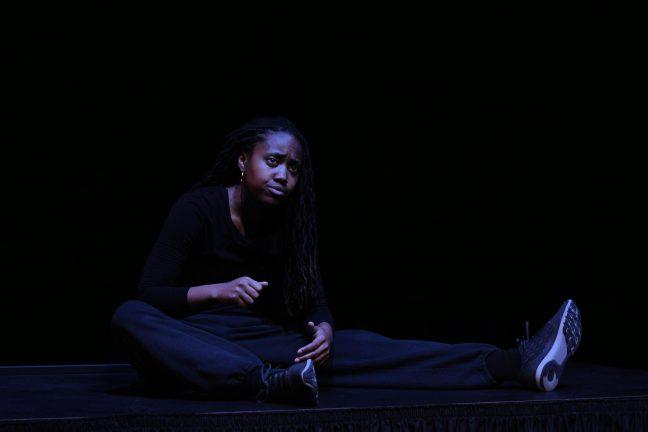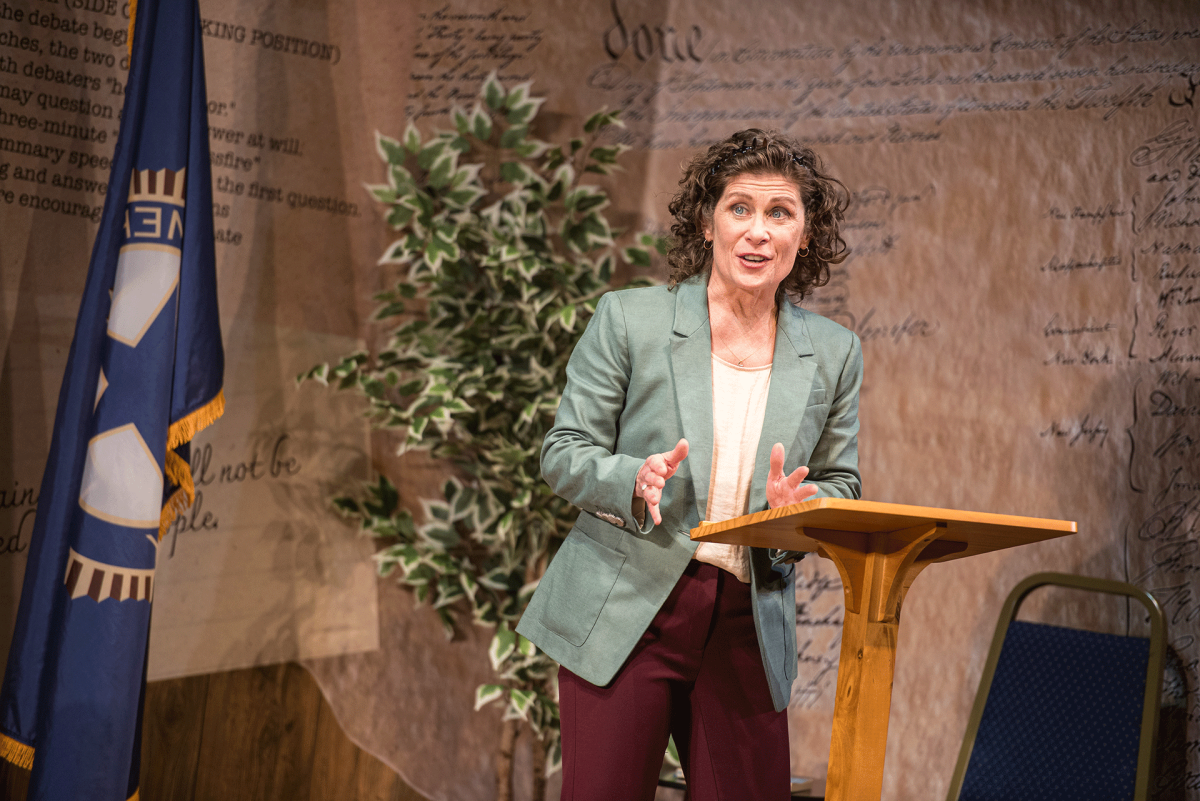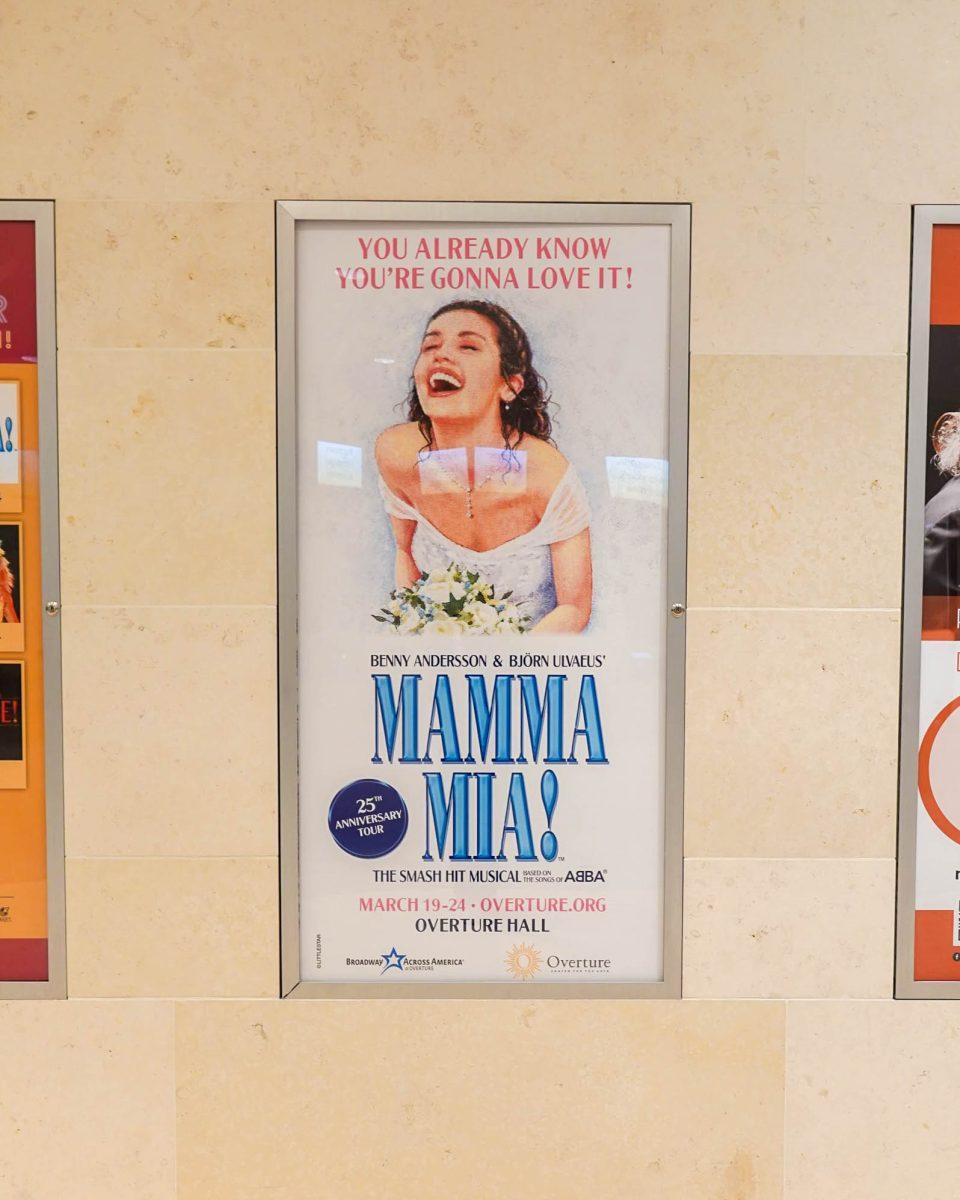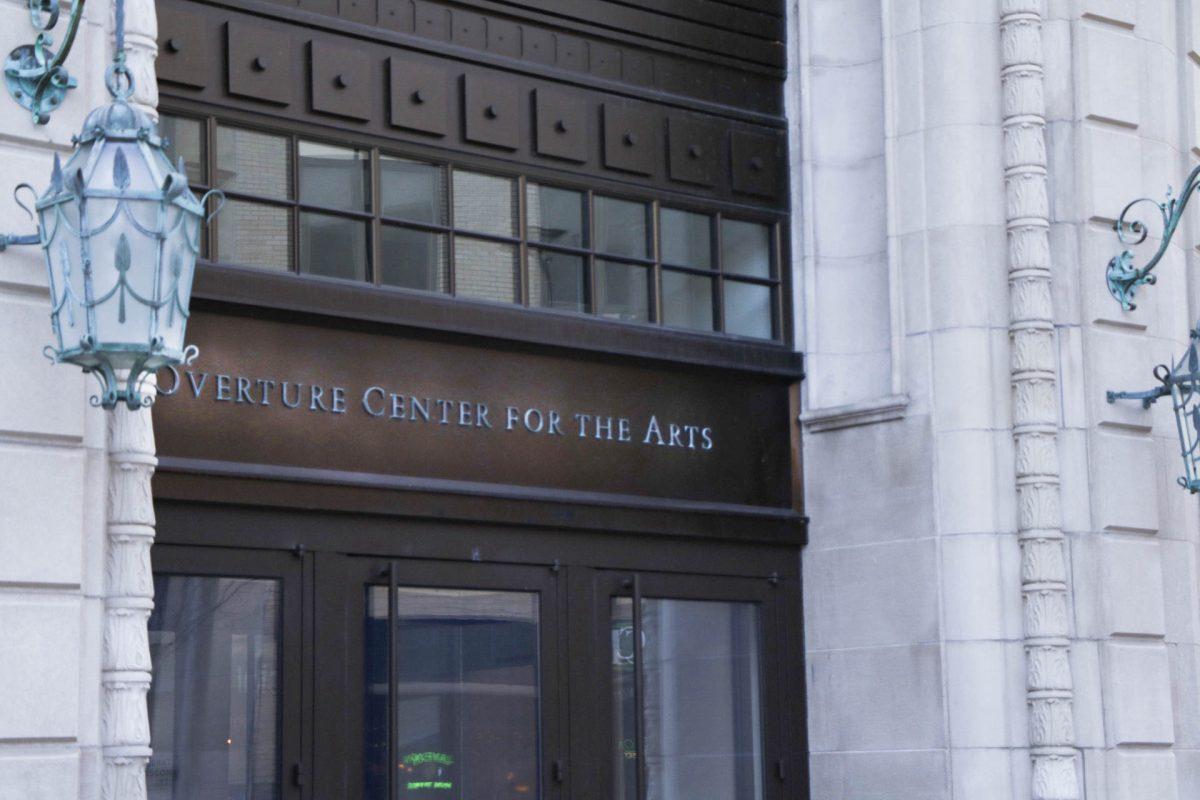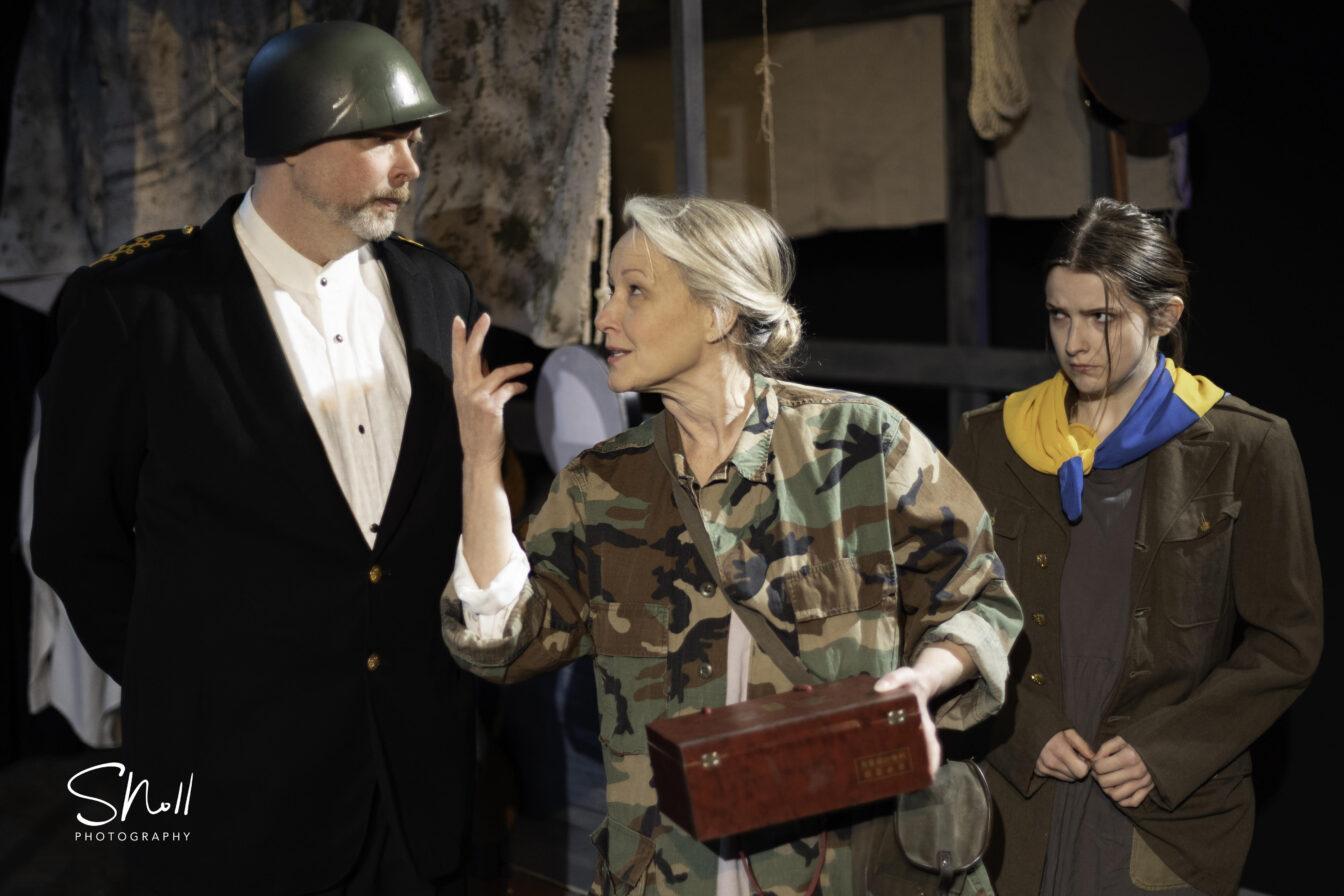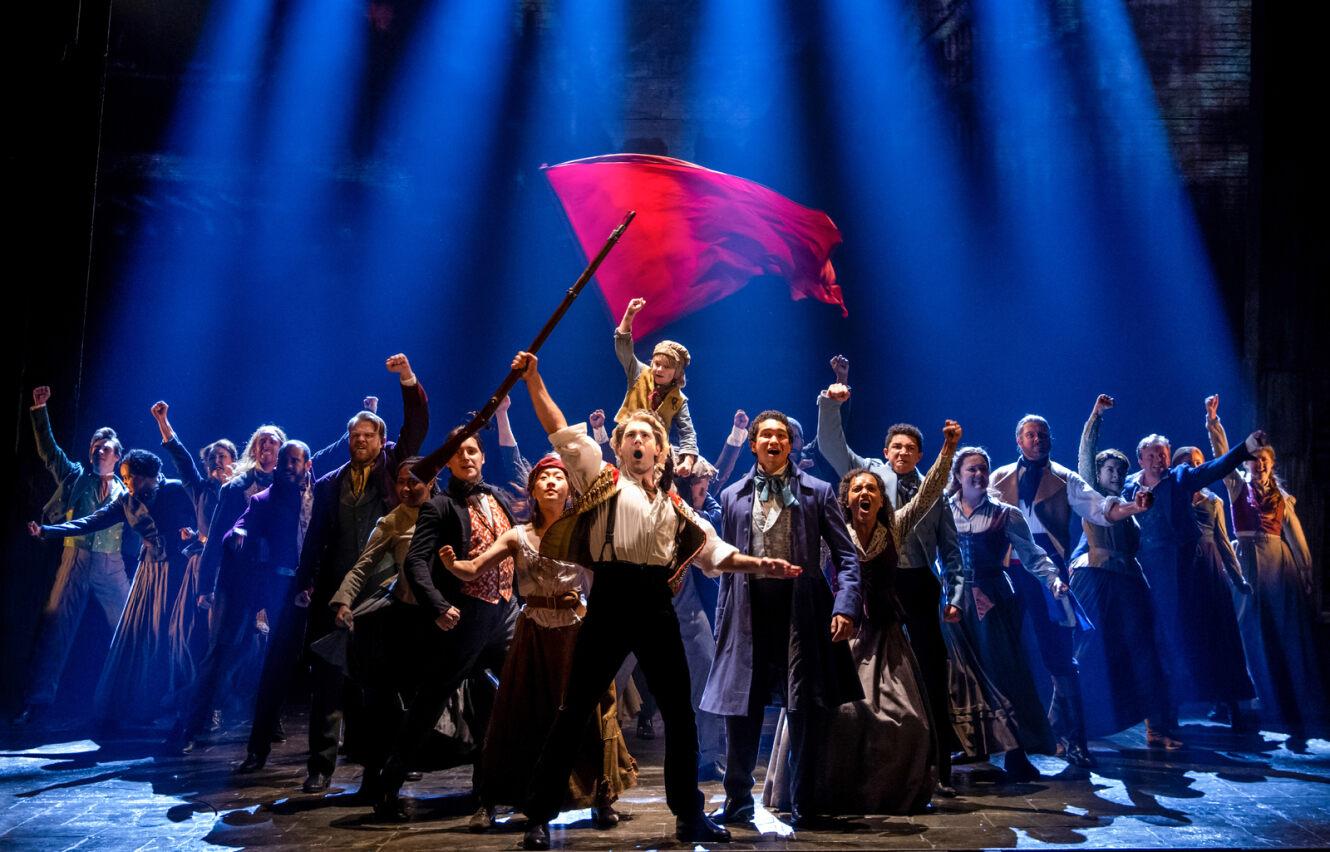“Abortion! Abortion! Abortion!” cried Bobbie-Marilyn, as the first words of “Rose Gold” resonated through the Fredric March Play Circle Sunday afternoon.
“Rose Gold,” written by Zhalarina Sanders, narrates the tragedy of black motherhood and brings light to the significance of their resulting relationships with black daughters. The story gives a voice to five black women who struggle with issues in the black community that are far more common than they should be.

The dynamic storyline of “Rose Gold” kept the audience captivated for its entirety. During the show, the room became so still, one could sense audience members holding their breath, all eyes remaining on Sanders. Sitting through the pain these characters evoked, the viewer could not help but find themselves tearing up at times due to the raw emotion left on stage.
Ajanae Dawkins, the project coordinator at the Campus Women’s Center, assisted Sanders with organizing the event to ensure it could happen in the public sphere.
UW medical school funds eight organizations dedicated to improving public health in Wisconsin
“I think there’s a large opportunity for learning empathy in situations you don’t understand because you haven’t been in them,” Dawkins said. “For me, empathy for people of different identities, or who are in situations you don’t understand, is the first step to building relationships and to work on some of the social issues we are having currently.”
Sanders is one busy woman, to say the least. Not only did Sanders write and create the one-woman show, she is also a rapper, actress, producer and graduate student at the University of Wisconsin.

Sanders also completed her undergraduate degree at UW as a First Wave scholar. She currently studies counseling psychology and uses performance art as an outlet to help individuals cope with the mental health of others as well as her own. Additionally, she is the co-founder and current executive director of the JVN Project, a Madison-based non-profit which, according to the website, “seeks to use hip-hop as a tool for social change, community uplift and positive youth development in every endeavor.”
UHS aims to expand mental health services through new online program, added staff
“I knew Zhalarina had this really brilliant work and I felt like it covered so many important topics that affect women, that affect black women specifically,” Dawkins said.
When asked how she manages her success in school while still being able to do what she loves, Sanders recalled the advice of a faculty member: “You have to add in and not add on.”
This guidance has become some of the most significant words of wisdom throughout Sanders’ life and career. She said it is critical to recognize individuals can do everything they love in some sense — they just have to find the best way to make it all work together.
Black, queer, proud: How a Netflix star is doing more than being a statistic
“You don’t have a choice,” Sanders said. “It’s either you do what you love or you suffer.”
Each character in “Rose Gold” had an exceptionally strong development of character. Sanders’ ability to channel each woman at the right moment was impeccable — she continued to prove so after her performance. Following the show, she gave a talk where audience members were allowed to ask any of the five characters a question. There was never a moment Sanders felt herself searching within for a character — they were all there ready to respond.

Although “Rose Gold” is a one-woman show, Sanders did not do it all completely alone. Sanders has extraordinary support from her friends, family and community
When asked where the development of the story’s characters came from, Sanders replied, “The story is 100 percent fictional. However, the characters are influenced a lot by my family.”
Some of the characters are even namesakes of her family members.
Black female leader spearheads new initiative to support women of color in business
If you were unable to attend “Rose Gold” this weekend, don’t fret. Leslie Lissaint is performing her one-woman show “This Is How We Heal” this Sunday, and admission for this event is also free.
Lissaint has developed her show into a full theater production involving dance, theater and monologues. The performance deals with mass incarceration, drug addiction, assault and the healing that comes from such issues.
To learn more about other events hosted by the Campus Women’s Center, check out their Facebook page.








